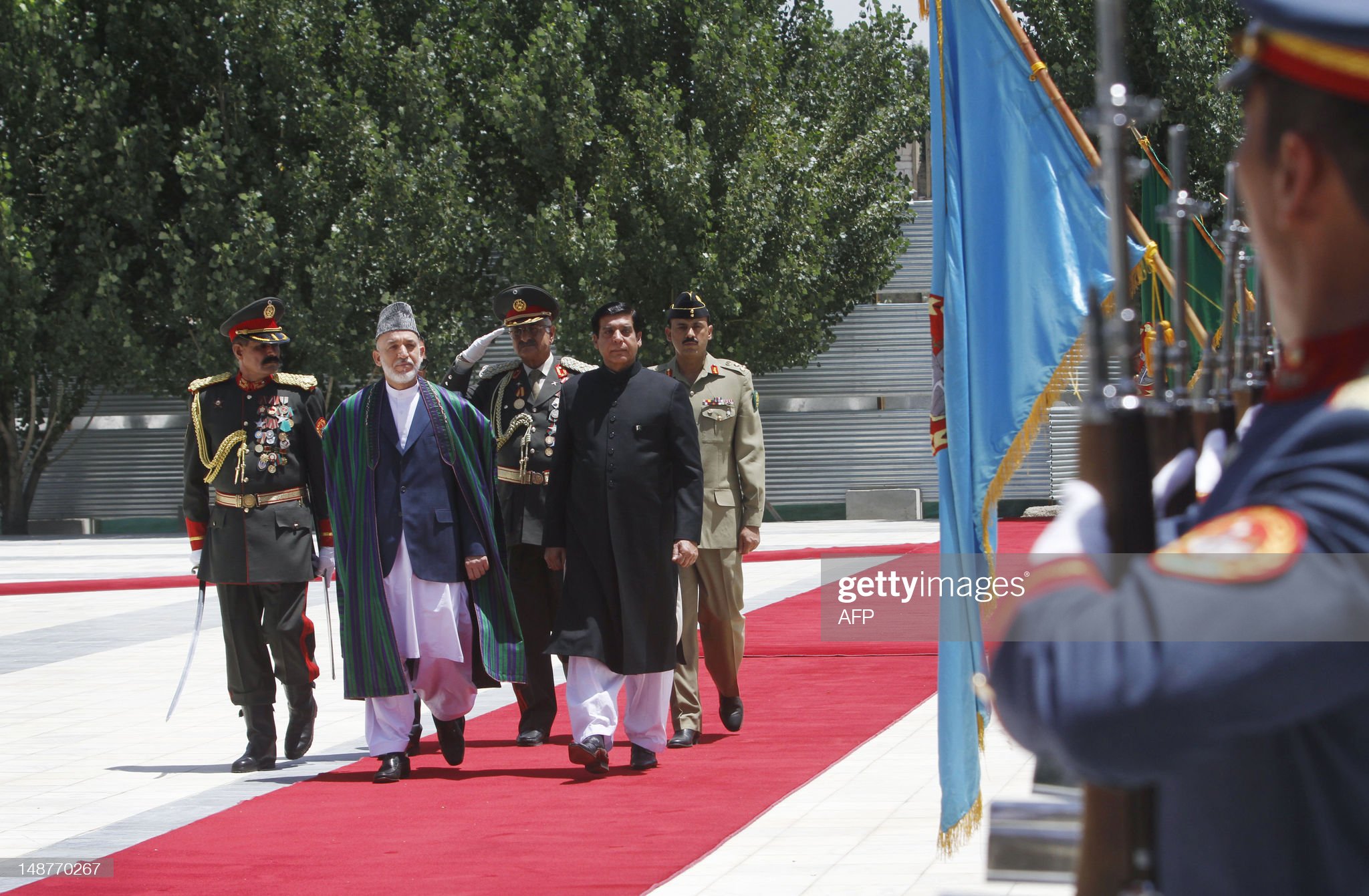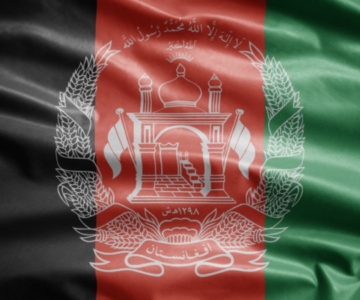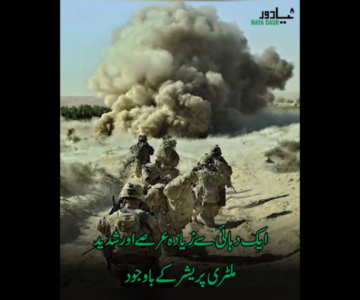Image Credits: AFP/Stringer
Published last month here
Pakistan will have to focus on bilateral trust building: with US, Afghanistan and India. This sounds daunting but there is no alternative to stronger diplomatic engagement
A day’s visit to Kabul is hardly sufficient to make an informed comment on the status of the Afghanistan imbroglio. The unfortunate term “end game” implies that for much of the world and regional powers it is all about carving zones of influence in post-Nato Afghanistan. The US wants to exit but is mulling over a partial presence. India wants to consolidate its partnership with the Afghan government and people. Iran has its concerns based on the Sunni strands of extremism. The Central Asian states want to profit from the new arrangements. And, Pakistan, the vital player in the region, wants to ensure that the future Afghan government is not hostile. Above all, it is concerned about being encircled by India on its eastern and western borders.
Pakistan, due to its peculiar history and irreversible geography, holds the critical cards in the future process. How far does it have leverage over the Taliban groups is a matter of debate. The country’s detractors say that Pakistan’s influence with the Taliban groups is a stumbling block in holding direct negotiations with the Taliban groups that the US has initiated and wants the Afghan government to extend and deepen this process in the months to come.
There is another view that despite the contacts, Pakistan does not control groups such as the Haqqani network and if it pushes them to the wall they could very well turn against Pakistan itself. There are also views on the perceived power of the groups, such as the Quetta Shura, which allegedly operates from Pakistan.
The gaming on Afghanistan has generated narratives on all sides. Afghan public opinion is sceptical of Pakistan. The US/NATO narrative is growing resentful of Pakistan’s policies. And within Pakistan, growing anti-Americanism and a particular populist understanding of history have led to paranoia about US intentions towards Pakistan. More worryingly from the Pakistani State’s perspective, the emerging US-India-Afghanistan axis mediated through strategic pacts, aid, relations with the leaders of non-Pashtun Afghan population, among others, are factors which pose a strategic threat.
Thus, Pakistan’s policy elites are apprehensive of Indian involvement in Afghanistan and view India’s growing influence in the country as a threat. As stated in recent reports, Pakistan would not be averse to Indian presence around development activities. The legitimacy of India’s role in Afghanistan’s economic development is recognised, but now there is a fear that India’s activities go beyond development.
There seems to be a diplomatic putsch at play. In the past year-and-half, Pakistan’s policy makers, which include the Foreign Office, ostensibly, with the support of the military establishment, have advanced engagement with the leaders of various coalitions, known historically as the Northern Alliance. While the distrust has historical roots, the recent visit of Pakistan’s Prime Minister, Raja Pervaiz Ashraf, to Kabul on July 19 demonstrated the initial results.
Pakistan’s embassy, which had been destroyed in the 1990s, was reconstructed in the last two years. Ashraf inaugurated it on his visit. What could have been a run-of-the-mill occasion became meaningful with the presence of the Afghan government, as well as all the non-Pashtun groups, including Ahmad Zia Massoud and Ustad Mohaqiq.
The journalists travelling with the Pakistani PM had a chance to interact with the guest list. It was apparent that despite the misgivings, almost all the leaders agreed that they needed Pakistan’s support towards a non-violent settlement of the post-Nato situation. The route to Kabul’s stability, therefore, has Islamabad as a key stopover.
The talks in Kabul included a trilateral meeting with British Prime Minister David Cameron, President Hamid Karzai and Ashraf. Later, in the bilateral discussion, the issue of a Higher Peace Council (HPC) led by Salahuddin Rabbani, the successor of slain Professor Rabbani, came into discussion, especially on how to turn HPC into an effective instrument in the near future in moving towards a resolution.
The Pakistani delegation included the entire policy elite – ministers of interior and foreign affairs and the director general of Inter-Services Intelligence (ISI). The HPC head is likely to visit Pakistan and more is likely to come out of the process. Perhaps Pakistan’s effort is to take over facilitation between the groups in Afghanistan and deepen the bilateral engagement to ward off some of the US pressure that it has been facing since the past two years.
Ejaz Haider, a Pakistani commentator who accompanied the delegation, wrote a few days ago: Helping Afghanistan helps in stitching up a possible deal between Kabul and the Taliban, despite many problems and imponderables. There are no guarantees but facilitation can go a long way. It will help if Pakistan were to release Mullah Biradar and other Taliban leaders who wanted to open up a channel with Kabul. What direction such talks might take is for the Afghans to figure out. Pakistan’s job is to set the direction.
Perhaps this is a bit optimistic given the intense pressure that the US has mounted and will continue to exert. But the sign that the country’s powerful military-intelligence complex is on board is encouraging. Active engagement as Haider noted, is vital. More importantly, it also underscores a shift in the conventional view of thepolicy elites.
Officially, Pakistan aims at an inclusive government in Kabul recognised by all ethnic groups and political stakeholders in Afghanistan, including the Quetta Shura Taliban and the Haqqani network, to render a future political arrangement workable. However, this is an objective which gets complicated due to the Pakistani Taliban whose future role in either of the countries remains unclear.
Perhaps a more viable strategy would be to think of ways in which the Taliban fighters can be rehabilitated and reintegrated into Afghan and Pakistani societies. The international community, including India, cannot remain oblivious to this policy goal.
Coming back to the Pakistani refrain on mushrooming Indian consulates in Afghanistan, this issue has to enter into bilateral discussions between the two countries which have entered into a seemingly sustainable albeit slow state of rapprochement. It has been reported that the National Directorate of Security, Afghanistan’s domestic intelligence organisation, has been providing Baloch insurgents in Pakistan with weapons allegedly on behalf of India. Afghanistan has also created havens for Taliban family factions, which attack Pakistan. The support to Baloch rebels was even admitted by the Afghan government in 2007.
India wants to expand its relationships in Southwest, Central and South East Asia. Its official policy views Afghanistan as an important gateway and can help India project its influence further into Central Asia. According to various reports, the recruitment of disaffected Indian Muslims in the ranks of Afghan groups might be worrying India as well. None of these imperatives lies outside the scope for a bilateral dialogue with Pakistan. There is a need for initiative, preferably political, on both the sides.
Pakistan will have to focus on three sets of bilateral trust building: with US, Afghanistan and India. This sounds daunting but there is no alternative to stronger diplomatic engagement. Globally, a settlement in Afghanistan requires an honest broker between all actors whose interests are not converging and may manifest in another uncertain phase for a country that has suffered three decades of war. It would be important for India to recognize that instability in Afghanistan will have its spill over effects immediately in Pakistan. How can India insulate itself from this?
This is why a regional approach building on bilateral discussions is required for all parties. A fine balance of competing interests and a set of workable compacts are required in the region. It will better if 64 year old states realise their historic responsibility.



